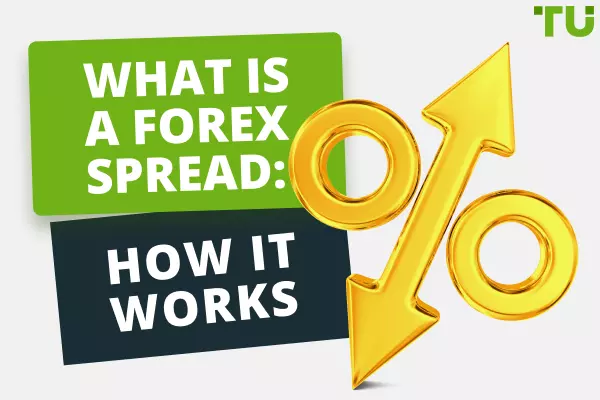Are Forex Robots Legal?
Forex robots, also known as expert advisors are software programs that enable traders to automate their trading strategies. These robots are designed to analyze market conditions and execute trades on behalf of the user. While such robots can provide a convenient and efficient way to trade the markets, it is crucial to understand the legal considerations surrounding their use. In general, using forex robots is legal, but there are a few key factors that traders should be aware of.
Are Forex Robots Legit?
Forex robots are automated trading systems designed to trade the foreign exchange (Forex) market on behalf of the user. As with any automated system, it's worth questioning the credibility of these robots and whether the user can realistically expect to make consistent profits. In this article, the experts at TU will discuss the legal scenario surrounding Forex robots and how you could choose a legal forex robot.
In general, Forex robots can be an excellent resource for traders needing more time or expertise to manage their accounts. They are designed to analyze the market and generate trading signals, allowing users to make decisions quickly and accurately. However, it is important to note that these robots are only as good as their programming. The user needs to understand how to interpret the signals correctly to make informed trading decisions. It is also important to understand that there is no guarantee that Forex robots will produce consistent profits, and as with any trading system, there is always an element of risk involved, sometimes even regulatory.
Can I use a robot to trade forex?
Yes, it is possible to use a robot to trade forex, and there are many advantages to doing so as well. For example, these robots can analyze market data and make trades based on predetermined rules, which can help to remove emotion from the trading process. This can be particularly useful for inexperienced traders who may need to gain the knowledge or experience to make informed trading decisions.
Do brokers allow robots?
Not all brokers allow trading with robots, but most brokers who offer the MetaTrader 4 (MT4) or MetaTrader 5 (MT5) trading platforms will allow trading with robots. These trading platforms are commonly used by forex traders and provide a range of tools and features, including the ability to use robots for automated trading.
MT4 and MT5 are popular forex trading platforms developed by MetaQuotes Software Corporation. They are designed for online trading in the forex, CFD, and futures markets and offer a range of features and tools for traders, including charting and analysis tools, advanced order types, and the ability to create and use automated trading strategies, including forex robots.
While most brokers who offer these platforms will allow trading with robots, it is always important to check with the broker to ensure that they support using forex robots. Additionally, traders should consider the potential risks and drawbacks of using robots for trading and carefully research and test any forex robot before using it to trade with real money.
Can a Forex Robot be a Scam?
Yes, a forex robot can be a scam. Unfortunately, like any other product or service, there are unscrupulous individuals who may try to take advantage of unsuspecting traders by selling them fraudulent or ineffective forex robots.
These scam artists may use various tactics to sell their fake or faulty robots to traders. For example, they may use fake or exaggerated claims about the profitability of the robot or offer unrealistic promises of huge returns with minimal risk. They may also use testimonials and "proof" of profits from satisfied customers, which may be fake or fabricated.
In some cases, the scammer may simply sell the trader a dummy robot that does not actually do anything or may even sell a robot that is deliberately designed to lose money. In other cases, the scammer may try to access the trader's trading account and steal their funds.
To avoid falling victim to a forex robot scam, it is important for traders to carefully research and evaluate any robot that they are considering using. This includes reading reviews and conducting independent testing to determine the effectiveness and reliability of the robot. It is also essential to only buy from reputable and trustworthy brokers and to be cautious of any offers that seem too good to be true.
How to Avoid Forex Trading Scams?How to Choose a Legit Forex Robot?
Here are some steps to follow when choosing a legitimate forex robot:
1. Research the broker/provider:
Start by conducting thorough research on the provider selling the forex robot. Look for reviews and ratings from other traders, and consider the reputation and track record of the provider. Be cautious of providers who are not well-known or have a history of fraudulent activity.
2. Evaluate the claims:
Be wary of any broker who makes exaggerated or unrealistic claims about the profitability of their forex robot. While it is possible for a forex robot to generate profits, most legitimate robots will have a more realistic and conservative approach to returns.
3. Test the robot:
Before purchasing a forex robot, it is essential to test it to see if it performs as advertised. Many providers will offer a free trial or demo version of their robot, which can be used to test its performance. Alternatively, traders can test the robot using a demo trading account with a forex broker.
4. Consider the risks:
It is important to remember that forex trading and using forex robots carry inherent risks. Even the best and most legitimate forex robots can lose money, and traders should always carefully consider their risk tolerance and trading strategy before using a robot.
5. Seek advice:
If you are unsure about a forex robot or are new to trading, it is a good idea to seek advice from a qualified financial advisor or professional trader. They can provide valuable insights and guidance on choosing and using a forex robot.
By following these steps, traders can increase their chances of choosing a legitimate and effective forex robot and minimize their risk of falling victim to a scam.
Best Forex Brokers Offering Forex Robots




FAQ
Do Forex robots have to be registered with any regulatory body?
The specific requirements for the registration and regulation of Forex robots may vary depending on the jurisdiction in which they are used. In some cases, Forex robots may need to be registered with a regulatory body, such as a financial regulator or securities exchange.
What are trading strategies, and why are they useful?
Trading strategies are plans or methods traders use to decide when and how to buy or sell financial instruments. These strategies can be based on various factors, including technical analysis, fundamental analysis, or a combination of both. Trading strategies can be useful for several reasons, including helping traders manage risk, identify opportunities, and make more informed and potentially profitable decisions.
What does the future hold for forex robots?
The future of forex robots is likely to be influenced by many factors, including technological developments, regulatory changes, and market conditions. Forex robots may continue to be widely used by traders, particularly due to technological advances and robots making it easier to automate trading tasks. However, forex robots are also likely subject to ongoing scrutiny and regulation, and traders need to use them responsibly and in accordance with all relevant laws and regulations.
Can Forex robots be trusted to make profitable trades?
It is important to approach the use of Forex robots with caution and to understand that there are no guarantees of profitability when it comes to trading. Forex robots can help traders make more informed decisions and increase their chances of success, but they are not a guarantee of profits. Therefore, it is essential to carefully research and evaluate the performance and reliability of any Forex robot before using it for trading and to use it responsibly as part of a well-rounded trading strategy.
Team that worked on the article
Chinmay Soni is a financial analyst with more than 5 years of experience in working with stocks, Forex, derivatives, and other assets. As a founder of a boutique research firm and an active researcher, he covers various industries and fields, providing insights backed by statistical data. He is also an educator in the field of finance and technology.
As an author for Traders Union, he contributes his deep analytical insights on various topics, taking into account various aspects.
Dr. BJ Johnson is a PhD in English Language and an editor with over 15 years of experience. He earned his degree in English Language in the U.S and the UK. In 2020, Dr. Johnson joined the Traders Union team. Since then, he has created over 100 exclusive articles and edited over 300 articles of other authors.









